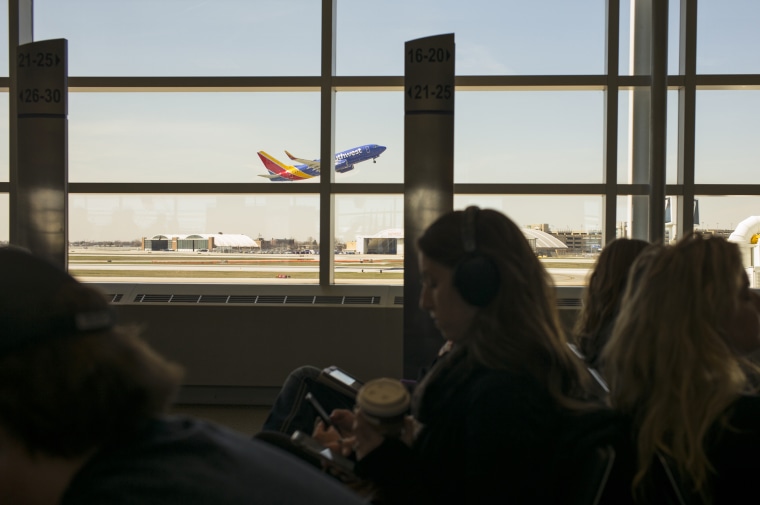A passenger with measles traveling through a Chicago Midway International Airport last week might have exposed others to the disease, Illinois health officials said.
On Feb 22, an Illinois resident with measles was on a flight that arrived at Midway, Chicago's second busiest airport. Officials say the passenger was "unvaccinated and infectious" at Midway, and sought emergency treatment at Northwestern Medicine Delnor Hospital two days after the flight.
Illinois Department of Public Health says those traveling at Midway on Feb. 22 between 9 p.m. and midnight are at risk of exposure, but travelers who were routinely vaccinated as a child are "not at high risk."
The IDPH is "most concerned" about people at Midway who have not been vaccinated.
"Individuals who think they have been exposed should check with their health care provider about protection through prior vaccination or the need for vaccination," the IDPH said in a statement.
IDPH Director Dr. Ngozi Ezike said that even though the disease is highly contagious, two doses of the vaccine are "about 97 percent effective in preventing measles."
“We urge everyone to make sure they and their family members are up-to-date on measles/mumps/rubella (MMR) vaccine and all other age-appropriate immunizations, especially if you are traveling to other countries where measles is regularly found," Ezike said.
Measles cases are rising throughout the U.S., a problem exacerbated by the growing conspiracies and misinformation spread about the vaccine online.
The CDC has confirmed 159 cases of measles already in 2019, many in the Pacific Northwest, where more than 40% of all cases have occurred. On Wednesday, lawmakers in Congress held a hearing on the growing outbreak.

